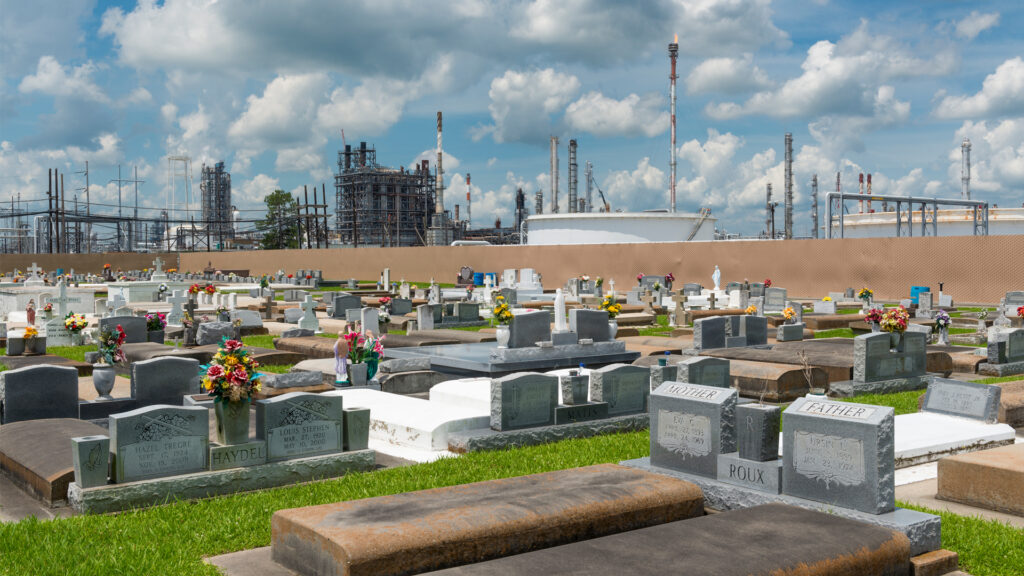By The Rev. Lennox Yearwood Jr., Hip Hop Caucus
In Louisiana’s “Cancer Alley,” where the air is thick with pollutants and asthma rates are alarmingly high, a troublesome irony is unfolding.
This region is home to sprawling petrochemical plants and toxic fossil fuels that disproportionately affect the respiratory health of the area’s majority-Black residents.
Here, inhalers — one of the key tools for managing diseases like asthma — play a dual role: alleviating symptoms of pollution while also contributing to environmental degradation. This paradox has underscored the urgent need for sustainable solutions that holistically address environmental justice, health and race equity issues in frontline communities like Cancer Alley.

Inhalers, often viewed as life-saving devices, have a profoundly negative impact on the environment. The most popular of the two main varieties of inhaler, metered-dose inhalers, release a gas that warms the earth hundreds of times faster than carbon dioxide.
A recent investigation by NPR revealed that the cumulative amount of climate-damaging gasses released from traditional inhalers is the equivalent of driving half a million gas-powered cars for a year. This means that each puff contributes significantly to climate disintegration. And as pollution damages more people’s lungs, the need for inhalers increases.
This 85-mile stretch of land wasn’t always referred to as Cancer Alley. Older residents recall a thriving community where many people lived off the nutrient-rich land. However, corporate greed and negligent politicians have irreparably damaged the soil, the land and the air, leading to some of the highest cancer rates per year for residents.
Dozens of new cases each year are believed to be linked to severe air pollution. That pollution has also led to high rates of asthma in the area. Even more concerning is data showing the link between pollution, asthma and cancer is visible in neighborhoods with high poverty rates — but not in more affluent communities, proving again that poverty kills.
The implications of the inhaler paradox are staggering. Not only do frontline communities bear the brunt of pollution-related health burdens, but they also face the ironic reality of using medical interventions that perpetuate the cycle of environmental degradation. Addressing this issue requires collective advocacy and action between healthcare professionals, environmental advocates, policymakers and community leaders.
We have long approached environmental and public health solutions with a Band-Aid instead of a cure. The unique problem posed by inhalers releasing toxic gasses that increase climate change is one example why short-term solutions are no longer an acceptable way to manage our climate’s deteriorating health. Frankly speaking, it’s too costly to keep operating under this model when it is costing lives, the health of our planet and our collective future.
Beyond encouraging the use of other inhalers and safe recycling, it is critical that government agencies do more to address greenhouse gas emissions so that we can proactively focus on prevention efforts instead of doing damage control.

While recent EPA rules on clean vehicles and emission reduction efforts are encouraging, it is not enough to combat the damage we have already done to the planet.
That is why my organization, the Hip Hop Caucus, is working with communities on the frontlines of these issues, uplifting their stories through The Coolest Show. Together we’re pushing back against attempts to roll back the minimal regulations protecting these communities and advocating to shut down operations that disproportionately put Black and brown lives at risk.
We’ve witnessed the effects of corporate greed and climate denial on our planet. It’s untenable to keep proposing short-term public health solutions without addressing the underlying causes of disease. Reports have shown how creating climate friendly policies can save taxpayer dollars in the long run — and more importantly, save lives.
It’s not too late to do right by the 20,000 residents of Cancer Alley. But we must act before it’s too late.
The Rev. Lennox Yearwood Jr. is the CEO of the Hip Hop Caucus, an organization which works to address environmental racism and injustice. This op-ed was produced by Inequality.org and distributed for syndication by OtherWords.org.
Sign up for The Invading Sea newsletter by visiting here. If you are interested in submitting an opinion piece to The Invading Sea, email Editor Nathan Crabbe at ncrabbe@fau.edu.



